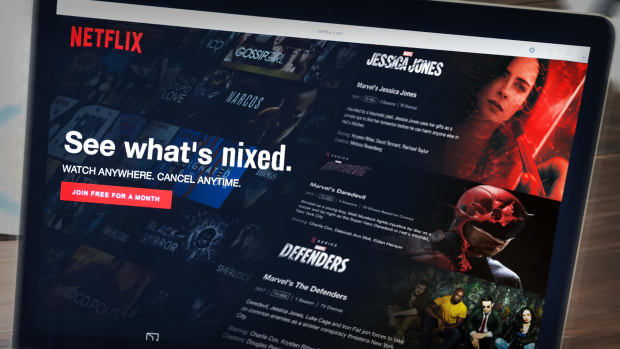Netflix (NFLX) does not understand why people subscribe to Netflix.
The company was built on content. At first, that meant mailing you DVDs, which was more convenient than going to Blockbuster or your local video rental store. In addition, the company did not charge late frees, so if you kept "Police Academy 4: Citizens on Patrol" for a month, you did not face the shame and added cost of returning it to an actual person.
Later, the company built its business on becoming the streaming home for popular, old content. If you wanted to watch every season of "Friends" or "How I Met Your Mother," without being beholden to whatever time those shows aired in syndication and you didn't want to shell out big bucks for the DVDs, Netflix had you covered.
Then, when every company launched its own streaming service making old shows more expensive or not available, Netflix pivoted to prestige original content. It never had a ton of hits all at once, but it always had a couple including "Stranger Things," "House of Cards," "Orange Is the New Black," "Ozark," and a few new seasons of "Arrested Development."
Netflix built its business on having content people wanted to see. That's the same model Walt Disney (DIS) used to launch its Disney+ streaming service. Disney+ was an instant hit because Disney has the best lineup of intellectual property (IP) of any company.
The Mouse House had the ability to create fewer shows with nearly all of them becoming hits. Disney's success did not mean Netflix had to fail -- there's likely room for 3-4 winners in streaming -- but Netflix appears to no longer know what made the company successful in the first place.

TheStreet
Netflix Has Focused on the Wrong Problem
Netflix recently added a cheaper ad-supported pricing tier. That's the company's big move designed to turn around its post-pandemic drop in customers. Previously, the cheapest Netflix offer cost $15.49 a month and the new deal, complete with commercials, costs $6.99 per month.
What the streaming giant is missing is that if it has hit shows people want to see, it's a bargain at $19.99 a month, but if it doesn't, it's a rip-off at $6.99.
Disney has built its streaming model on essentially having one major event show streaming a new episode every week. That could be a Marvel or a Star Wars show, or something else from the company's vast IP library, but there's always a hit with a built-in audience.
This has allowed the company to not only build the second biggest streaming service in under three years, but to actually raise its price. Disney increased Disney+ from $6.99 a month to $7.99 a month and as long as it keeps delivering shows people want to see, it can raise prices by a dollar or two each year for years to come.
Netflix thinks it has a pricing problem but actually it has a content problem. It doesn't have enough hit shows and when it has a hit it dumps all the episodes out at once (or occasionally in two releases). That kills the public relations cycle, makes it impossible for people to talk about the show with their friends (some people watch it in a weekend, others spread it out) and giving entertainment media one story to cover instead of a new one every week.
Streaming Pricing Doesn't Matter
Prices are always relative to value. If watching a new episode of "She-Hulk" or "Andor" is the entertainment highlight of your week, than you'd likely happily pay more for Disney+. When Netflix goes months without having any shows you want to watch and even when it has one does not draw you along with a weekly release schedule, it's not worth $6.99 let alone $15.49.
During the pandemic people paid $30 to stream original movies at a time when people could not go to theaters. People regularly pay $60 or more for UFC or All Elite Wrestling (AEW) pay-per-views because they feel they're getting good value for their money.
Netflix's problem was never price. People have readily paid $15 a month for HBO because the channel always had one or two prestige shows people wanted to see. You couldn't cancel after a "Sex in the City" season ended because "The Sopranos" was coming soon and while HBO has suffered too, it still follows that model.
Produce must-see television shows that people talk about and release episodes once a week. If you do that, history has shown that price matters very little.







